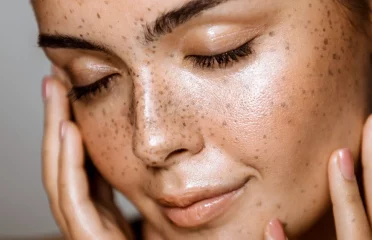In this article we will describe what does the skin do.
The skin has 7 functions:
The skin acts as a barrier that protects the underlying tissues organs from UV radiation and physical injury; and external factors such as harmful microorganisms (it is also home to about 1000 species of non-harmful bacteria),
The skin is rich in nerve endings that allow us to perceive various sensations; including touch, temperature, pain, and pressure. These sensations help us interact with the environment and provide valuable information about our surroundings.
The skin plays a role in regulating body temperature through processes such as sweating. Sweat glands in the skin produce sweat that evaporates and helps cool the body, while blood vessels in the skin can expand or contract to regulate heat loss or retention.

Certain substances can be absorbed through the skin, such as medications and topical treatments. This property of the skin is utilised in medical applications like transdermal drug delivery.
Sweat glands in the skin help excrete waste products from the body, including water, urea, and electrolytes, through the process of sweating. You can sweat up to 10 litres of sweat on a hot day.
When the skin is exposed to sunlight, it triggers the synthesis of vitamin D, an essential nutrient that helps regulate calcium metabolism and promotes bone health.
The skin plays a role in our appearance, which can have social and psychological implications. The colour, texture, and condition of the skin can affect our self-esteem, social interactions, and cultural perceptions of beauty.
We have described what does the skin do (7 functions). It is a complex organ that performs a variety of crucial functions, including protection, sensation, regulation, absorption, excretion, vitamin D synthesis, and aesthetic and social functions. Taking care of our skin is essential for maintaining overall health and well-being.